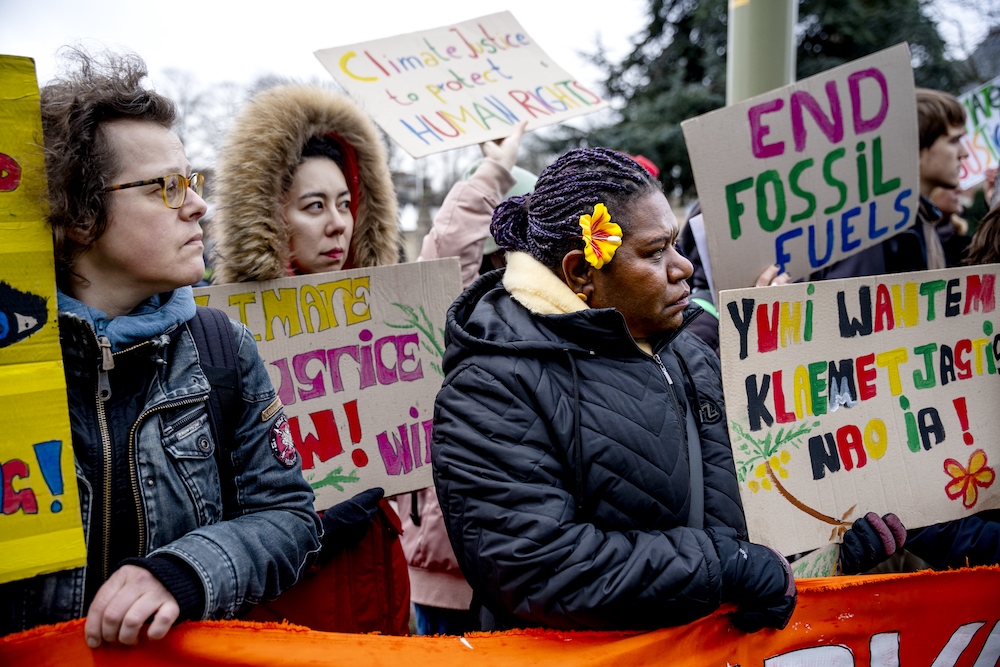Landmark climate change case opens at the top UN court

Two weeks of hearings into the legal rights and responsibilities of countries regarding climate change opened at the UN’s top court in The Hague on Monday, with the small island nation of Vanuatu urging International Court of Justice (ICJ) judges to hold the world’s polluters legally responsible.
For the representatives of Vanuatu, part of a group of small island countries pushing for legal intervention in a climate crisis they call an existential threat, this is a straightforward legal case: a few heavy polluting countries are infringing on their right to self-determination and reneging on their own legal responsibilities and must be held legally accountable.
“Today, we find ourselves on the front lines of a crisis we did not create, a crisis that threatens our very existence,” Vanuatu’s climate change envoy Ralph Regenvanu told the court.
“The conduct on trial here is that of states which have failed for over a century, despite increasingly dire warnings, to reign in the emissions from their territories…. Since 1990, emissions have increased by over 50%, reaching an all-time high in 2023.”
Under water
The small island states that initiated the case, leading the UN’s General Assembly last year to ask its highest court for an advisory opinion on the “obligations of states in respect of climate change”, say the legal route is necessary. This is because UN climate conferences, like the one held just last month in Azerbaijan, are not producing results.
They want fossil fuels to be phased out and more money given to smaller nations bearing the brunt of climate change.
“According to the International Monetary Fund, the cost of fossil fuel subsidies from states reached an all-time high of $7 trillion in 2022,” University of Cambridge professor Jorge E. Viñuales told judges. “That is more than 23 times the figure that developing countries struggled to secure as climate finance in the recent COP 29.”
He said despite pledges from large state emitters that have promised to achieve net-zero emissions, most continue to “promote, subsidise, support and plan on the expansion of fossil fuel production…lip service to climate commitment.”
Professor Margaretha Wewerinke-Singh, lead counsel and advocate for the Republic of Vanuatu and the Melanesian Spearhead Group, said the legal remedies are well-established and include: responsible states ceasing their unlawful activity, such as expanding fossil fuel subsidies; enacting a “suite of regulatory measures for deep and imminent emission cuts”; reparations; and, for “harms that can’t be undone”, monetary compensation.
Silence
“Silence risks implying that international law condones this conduct, that it carries no legal consequences and that it can continue with impunity,” said Wewerinke-Singh.
Cynthia Houniuhi, president of the Pacific Island Students fighting Climate Change, whose group initiated the case, called on judges to apply the law.
“You possess the power to help us course-correct and renew hope in humanity’s ability to address the greatest challenge of our time. And you can do this simply by applying international law to the conduct responsible for climate change.”
The landmark case will see a record 99 countries—including top emitters the US and China and organisations like OPEC—weigh in on the issue. Although the court’s opinion is non-binding, it will likely influence litigation worldwide in a year that is destined to be the hottest on record.
Thank you for donating to DutchNews.nl.
We could not provide the Dutch News service, and keep it free of charge, without the generous support of our readers. Your donations allow us to report on issues you tell us matter, and provide you with a summary of the most important Dutch news each day.
Make a donation